People
Our Team
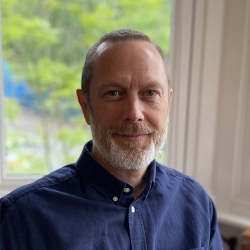
Michael Clarke, Ph.D.
Assistant Professor
Lab Director
Burk Hall 103
(415) 338-7655
Dr Michael Clarke is a speech language pathologist (SLP) and an assistant professor in the Department of Speech, Language and Hearing Sciences in the Graduate College of Education. His area of professional expertise is in augmentative and alternative communication (AAC). His research in the area of AAC is motivated by questions arising from clinical practice and is rooted in close collaboration with families, SLPs, teachers, paraprofessionals and occupational therapists. He has a particular research interest in in-person multi-modal interaction involving children who are provided with AAC systems and tools.
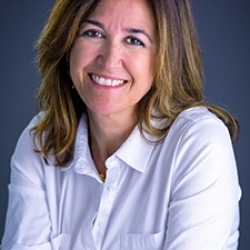
Gloria Soto, Ph.D., CCC-SLP
Professor, Graduate College of Education Dean of Research, Undergraduate/Graduate Advisor
(415) 338-1757
Burk Hall 271
Dr. Gloria Soto is a professor in the Department of Special Education. She teaches graduate coursework in special education, cultural diversity, augmentative communication and curriculum-based language and communication intervention. Her area of professional expertise is in augmentative and alternative communication (AAC). Her areas of research interest include applied educational issues such as multiculturalism, collaborative teaming, inclusive education and professional preparation, as well as more basic areas such as narrative language in AAC, language development through augmented means and the impact of graphic symbol use on language development. She is a frequent speaker at national and international conferences related to communication intervention and special education. She has published numerous articles and book chapters.
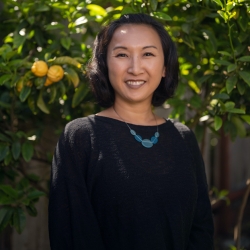
Betty Yu, Ph.D., CCC-SLP
Professor, Undergraduate/Graduate Advisor, Thesis Coordinator
(415) 338-3429
Burk Hall 105
Betty Yu is a professor in the Department of Speech, Language, and Hearing Sciences and a managing co-editor of the Journal of Critical Study of Communication and Disability. Her research and clinical interests are in how communication access among racially-minoritized, disabled children in multilingual communities are shaped by institutional practices/policies, family socialization and dominant ideologies about race/language/disability. She has investigated the communication and socialization experiences of autistic children in Bay Area Chinese communities as they and their families interact with disability services, school systems and healthcare. Another strand of her work focuses on issues of equity in the field of Speech, Language and Hearing Sciences (SLHS), particularly the systemic influences of raciolinguistic discrimination, ableism and pathologization.
Collaborators
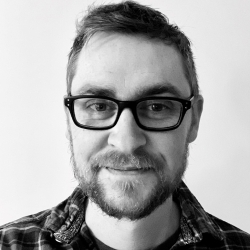
Tom Griffiths, Ph.D.
Tom is a clinical scientist and lecturer in Assistive Technology in the Department of Computing at University of Dundee. Tom's research interests include the use of eye-gaze control technology to support communication and access to computer control. In particular, Tom has an interest in the barriers and facilitators to acquiring this complex access method at the early stages, as well as the contribution of functional vision skills to early communicative interactions. Tom lectures on the Master's course in Educational Assistive Technology at Dundee and is a member of the AAC Research Group. His background includes extensive clinical experience working with AAC users and their families.
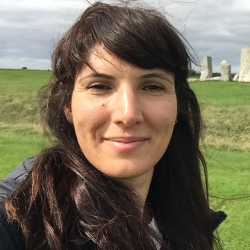
Seray Ibrahim, Ph.D.
Dr Seray Ibrahim is a postdoctoral research associate in the Department of Informatics, King’s College London. She is interested in how digital technology can positively impact the everyday lives of people who often have little say over how technology is designed. Her research is situated within the area of Digital Health, with specific applications of user-centred design in disability and design, and child mental health. She draws on interdisciplinary perspectives from human computer interaction (HCI), augmentative and alternative communication (AAC), multimodality, psychology and her clinical speech therapy background to examine the role and design of technology for supporting social interaction, learning and mental wellbeing for children and their communities.
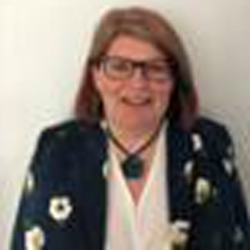
Sarah Hayward, MRes
Sarah Hayward is a specialist speech and language therapist with a range of clinically-focused research experience including successful completion of undergraduate and postgraduate research projects; research assistant roles, Quality Improvement, audit and service evaluation. Sarah has completed an NIHR funded Pre-doctoral Clinical Academic Fellowship (PCAF) in 2020 and was awarded an MRes Applied Research in Human Communication Disorders within the department of Language of Cognition at UCL. Sarah is currently a Ubel-dtp funded MPhil/Ph.D. student and her research area of interest is speech and language therapy (SLT) for children who have little or no intelligible speech and are provided with alternative and augmentative methods of communication (AAC) such as speech generating technologies. In particular Sarah has a strong interest in how the collaborative partnerships between SLTs and parents/carers of children who use minimal verbal speech can work best to maximize outcomes for children and their families.
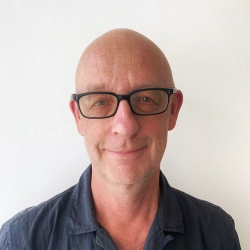
John Swettenham, Ph.D.
John is an associate professor (reader) in the Division of Psychology and Language Science, University College London, UK. He is interested in the development of social communication skills in autistic children and children who cannot use speech as their primary means of expression. His research has looked closely at the development joint attention skills (e.g. following others’ gaze and share attention with others) and he has also studied more general cognitive processes that might influence communication (e.g. proposing an ‘increased perceptual capacity’ in autism and individual differences in biological motion perception). In collaboration with colleagues at Great Ormond Street Hospital and SF State, he examined how to assess functional gaze control, studied the role of attention in communication, worked on a screening tool for visual impairment and developed of an eye gaze classification system for clinical use.